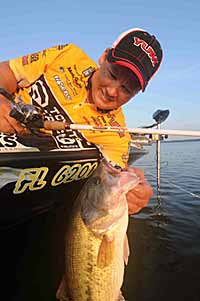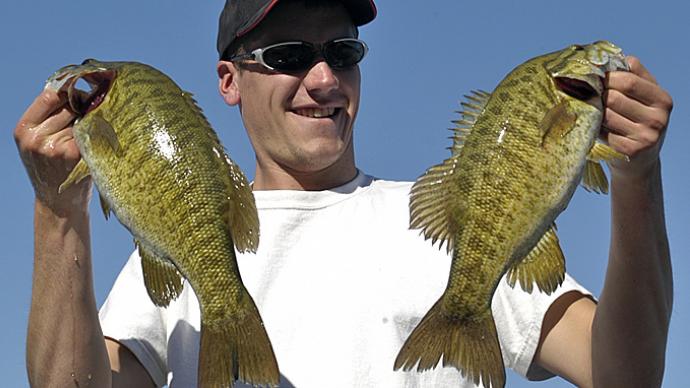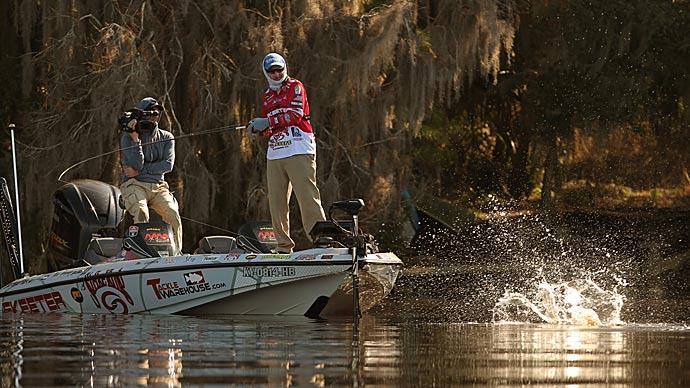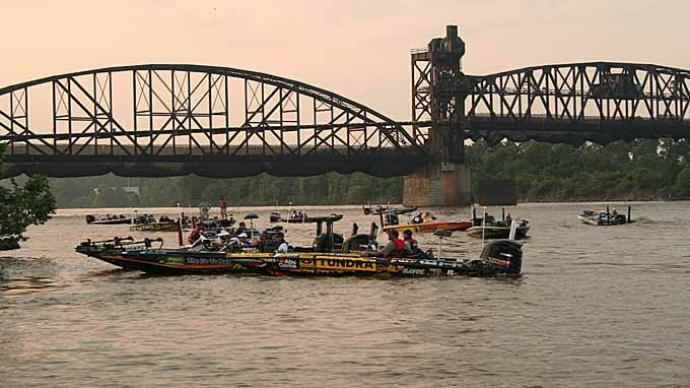
I get asked for advice on this subject far more than any other question concerning fishing. Many anglers, especially tournament fishermen, dream of a fishing career. It was my dream and still is, and I know many other people have the same dream.
From my experience, my advice is a blueprint, if you will. It has been a hard road to travel, but it may answer your questions.
One of the sayings I'm most fond of regarding a fishing career is, "Don't decide on a fishing career to make a small fortune; just make sure you start with a large one." This is one of the biggest stumbling blocks you'll face. Money will be a significant factor in how you approach a fishing career unless you're rich.
A good example is the Bassmaster Top 150 tournament trail. I fished it last year. To fish the entire season, and do it right, is expensive and time-consuming. For example, you will be gone from home for 15 weeks. I don't know of any paying jobs that will give you 15 weeks of paid vacation.
Of the 150 pros that fished, only 18, that's right, 18, even won enough to cover expenses. Of course, this is the most demanding and rewarding of all professional tournament circuits to even qualify for. But you have to look forward to this if you make it to the top of the fishing game. The payback is getting better and better.
As tournament fishermen, we have to face facts. We have always fished for our own money from entry fees. I don't have a problem with that, but some people don't understand that it limits what we can win. So you have to pay attention and be careful about choosing events to compete in. Always read the fine print. Some even claim to pay back 150 percent. In my experience, some of its just hype. You can do the math yourself. Nobody can stay in business paying out more than they take in, no matter what kind of business they're in. You can stay with tournaments that have been established for some years. As a tournament angler, I look for a payback benchmark of 80 percent. With some events, you'll have to search through the fluff and fine print, but if payback hits close to this mark, I know the circuit can stay around for a while. Now, if you still want to fish, let's get down to the nitty-gritty.
You've heard this before, but there's a reason - it's true. Start with a bass club. This is the grassroots of tournament competition. If you can compete at every event and win at least 30 to 40 percent of the time, don't try to move up.
I fished my first club tournaments in 1978 in two clubs. Both were well organized and had plenty of good fishermen like Jim Poole of Fin and Feather, Hoyt Fincher, and several others. So I got my feet wet against some pretty stiff competition.
I teamed up with my best friend Roy Carlson to fish in team tournaments. This is the logical next step for bass club events. There are more anglers, larger purses, and usually a championship at the end of the season. That was in 1986, and we fished US Bass.
The north division of US Bass averaged close to 150 teams at each tournament. We never got a limit in one single event, but we received a check at each one and won the Anglers of the Year title. We fished Anglers Choice for four years following that and never finished lower than second at year's end and even won several events.
When Roy had to slow down on his fishing due to family business obligations, I started fishing at Anglers Choice Pro Draw events. Some of these even took me out of Texas. I never won any of them but had some second, third, and several top 10 finishes - and qualified for every championship. I still fished other team events with partners like Mike Odom, Forrest Fritcher, Bruce Rasco, and Quinn Wilson. We won several events and consistently qualified for championships. It was then I felt ready to take the next step.
In 1995 1 entered my first BASS Invitational. These are the events where you can't have even one bad day or lose a single fish and win. But that's what you should want if you want to be the best of the best. It took me five years, but I finally qualified for the Top 150. These events took me to Washington, DC, Florida, and Texas, with many places in between. My best finish this year was on the Mobile Delta at seventh with a $10,000 check, and I have qualified again for the next season.
So if you have your sites set on being a professional tournament competitor, remember it won't happen overnight. Be patient, work hard, and you can make your dream come true - because if I can, you can too.
Bill Wilcox is sponsored by Ranger Boats, Yamaha Outboards, MCMC, BG Products, Pro Rule, Johnson Fiberglass, Brown's Automotive, Continental Batteries, Kistler Rods, Swamp Hog Lures, Strike King Lures, Fun-n-Sun Sports Center.




